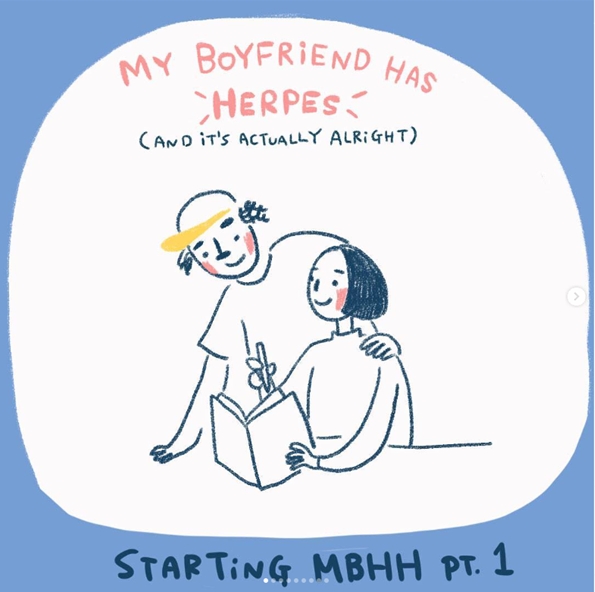STI status: How to talk about getting tested before sex
Talking about getting tested before sex may sound awkward but it is possible to normalise it
We often talk about how to protect ourselves from pregnancy, but what about protecting ourselves from sexually transmitted infections? Where’s all the talk about our STI status?
What are STIs?
STIs are sexually transmitted infections and unfortunately the rates are staggeringly high among young people in the UK. Anyone can get an STI. They do not discriminate. It doesn’t matter how many sexual relationships you’ve had, your sexuality, your gender identity, or what sort of sex you’re having. But don’t fear! You can easily take control of your sex life and protect yourself from STIs.
Let’s talk condoms and dental dams
Condoms and dental dams are a fantastic way to keep yourself safe from STIs! They are a barrier method of contraception — named this because they literally put a barrier between yourself and the other person. When used correctly, condoms are 99% effective at protecting from pregnancy and some STIs.
What about other STIs?
Unfortunately, you can contract some STIs through sexual touching and condoms can’t protect you in this case. Genital herpes, genital warts and syphilis can be transmitted through skin-to-skin contact around the affected area, usually the genitals. It’s also easy to make mistakes with condoms without even realising, check out this video showing you how to use a condom properly.
How do we protect ourselves from all STIs?
It’s actually simple: we have to talk to each other before having sex. It can feel awkward if we’ve never talked about our STI status before but, like anything, it will feel more normal with practice. That’s not to say that we need to start broadcasting it alongside our relationship status. But if we’re going to sexually intimate with someone, of course we should have the right to ask if they have an infection. And they should be able to ask you too.

How do I know my STI status?
Getting tested! You can be tested for chlamydia and gonorrhoea through a urine sample or vaginal swab. You do it yourself—either wee into a little pot or swab inside your vagina with what looks like an ear cotton bud. HIV and syphilis are blood born so they are tested through a blood sample. This can be done easily at your nearest sexual health clinic or you can get a postal kit in some areas of the country. Find your nearest service here or SH:24 deliver free postal testing to some areas.
Usually, a negative result (meaning that you don’t have any STIs) will be sent to you via text, unless you request otherwise. A nurse will ring you if there’s a positive result (meaning you do have a STI) so that you can sort out treatment. If it is a positive result, don’t worry! Most STIs can be treated with antibiotics like any other sort of infection (ear, throat, chest).
How do I start a conversation about my STI status?
So, you’ve been tested and you know your STI status. Now you want to know the other person’s situation. The good news is: you can take advantage of messaging and texting, if that feels easier. It can be as simple as sending a message saying:
“My last STI test was [date], and I am [positive/negative] for [insert STIs]. How about you?”
If you are sharing a STI positive result—which could be the case because some STIs, like genital herpes, are treatable but not curable—then it’s wise to also share some resources with the other person:
I have [eg. herpes], and I know you might need some time to think about what that means. Here are some resources that helped me with my diagnosis and might be helpful to you too. Please feel free to ask me any questions.”
If you have genital herpes or if the person you’re having sex with has genital herpes, it is not the end of the world! People with non-curable STIs still have healthy and fulfilled sexual relationships. This Instagram account does a great job at showing this:
Talking about sex
It is very normal to feel shy about bringing these conversations up. Our culture doesn’t encourage people to talk about sex without shame. Films and pornography very rarely include conversations about our STI status and consent. It’s not normalised. But that doesn’t mean that you can’t normalise it within your own sex life! If someone doesn’t want to talk about their STI status and insists they “just know” that they don’t have an STI, that’s a bad sign. Of course, they may need some time to adjust to talking about this stuff, the shame around talking about sex runs deep! But if they are insistent about not getting tested, sadly this is clear sign that they’re not being proactive about looking after their health, and so your health too. You deserve more than that.
Other support
- Where to get a sexual health check in the UK
- Brook – Free STI home testing kits
- Brook – STIs and stigma
Read more
Last Reviewed 11 January 2023
Image Credit: AllGo via Unsplash






